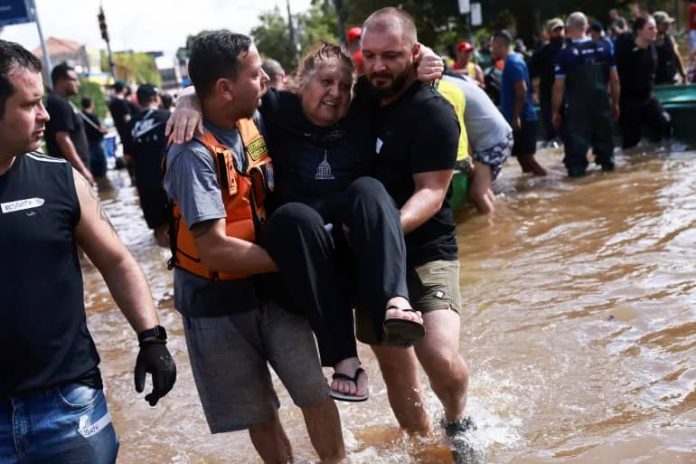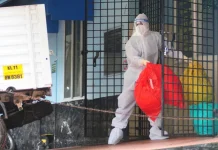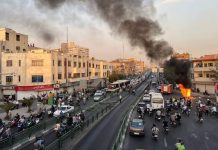Authorities reported on Wednesday that the death toll from the destructive floods that have devastated southern Brazil for days had surpassed 100, while efforts to locate the many persons who are still unaccounted for continued.
The largest natural disaster to ever impact the state of Rio Grande do Sul has damaged nearly 400 communities, resulting in 160,000 people being displaced from their homes and hundreds of injuries.
Many people lack access to electricity, clean drinking water, or even the means to call for assistance because phone and internet services are often unavailable.
In Porto Alegre, the state capital, and other cities and towns, state governor Eduardo Leite had issued a warning on Tuesday that “the emergency is continuing to develop” and that the death toll would probably increase.
Authorities warned residents against going back to the impacted areas because of the risk of landslides and health issues. Across the state, about 15,000 volunteers, police, firefighters, and soldiers were working to rescue people who were trapped and deliver supplies. Many of them were operating boats and even jet skis. In the face of reports of abandoned properties being plundered, many individuals are reluctant to leave their homes in favour of the safety of shelters.
Unprecedented rainfall and floods in the state have damaged or destroyed approximately 100,000 homes, according to the National Confederation of Municipalities, with losses estimated at more than $900 million.
There are roughly 1.4 million people living in Porto Alegre, and there are more than twice as many in the greater metropolitan region. Five dams are in danger of failing as the Guaiba River, which flows through Porto Alegre, reaches historic levels. Officials warned that drinking water was the most important necessity for those left trapped by blocked roads, destroyed bridges, and flooded homes, and there were lines at public taps and wells.
The mayor’s office reported on Tuesday that only two of Porto Alegre’s six water treatment plants were operational, and tankers were supplying the city’s hospitals and shelters. While work on reopening roads, helicopters were bringing food and water to the most vulnerable populations.
The Brazilian Navy was to send its “Atlantic” vessel — Latin America’s largest — to Rio Grande do Sul on Wednesday with two mobile water treatment stations.
President Luiz Inacio Lula da Silva has vowed there would be “no lack of resources to meet the needs of Rio Grande do Sul.”
In Gasometro, a part of Porto Alegre popular with tourists, the water continued to rise Wednesday, complicating rescue efforts.










